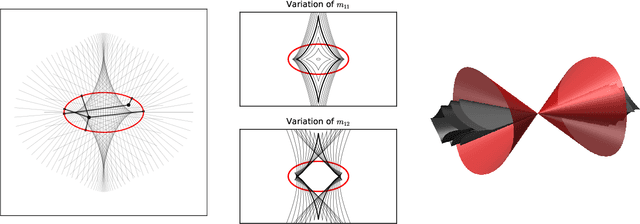Elzbieta Polak
Geometry and Optimization of Shallow Polynomial Networks
Jan 10, 2025

Abstract:We study shallow neural networks with polynomial activations. The function space for these models can be identified with a set of symmetric tensors with bounded rank. We describe general features of these networks, focusing on the relationship between width and optimization. We then consider teacher-student problems, that can be viewed as a problem of low-rank tensor approximation with respect to a non-standard inner product that is induced by the data distribution. In this setting, we introduce a teacher-metric discriminant which encodes the qualitative behavior of the optimization as a function of the training data distribution. Finally, we focus on networks with quadratic activations, presenting an in-depth analysis of the optimization landscape. In particular, we present a variation of the Eckart-Young Theorem characterizing all critical points and their Hessian signatures for teacher-student problems with quadratic networks and Gaussian training data.
 Add to Chrome
Add to Chrome Add to Firefox
Add to Firefox Add to Edge
Add to Edge